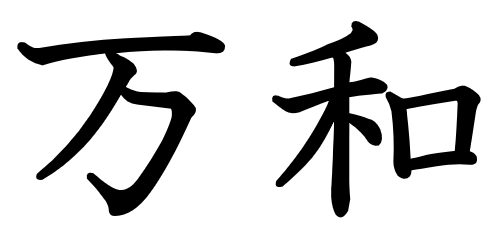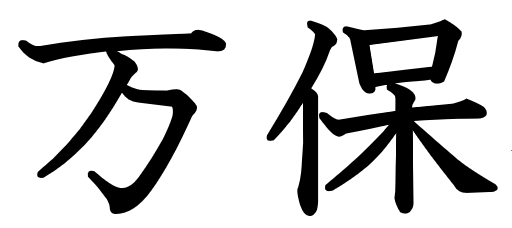Next month, Emperor Akihito is scheduled to relinquish his position to his son, Crown Prince Naruhito. As is tradition in Japan, the reign of a new emperor is accompanied by a new era name, and so on May 1 the Heisei period will end, and the new era, called Reiwa, will begin.
The Japanese government announced the new era name on the morning of April 1. Taken from the Manyoshu, the oldest collection of Japanese poetry, Reiwa is written in Japanese as 令和, composed of the kanji characters for “order/orderly” and “peace/harmony.”
However, Reiwa wasn’t the only candidate for the new era’s name. Roughly two months ago, a panel of scholars and the prime minister’s cabinet began paring down the list of potential names, and as recently as a week ago there were still six possibilities (including Reiwa) they were looking at. Four more of the final six have now been leaked, so let’s take a look at the era names we almost got before the panel settled on Reiwa.
1. Eiko

英 has a number of meanings, including “beautiful,” “glorious,” and even “flower.” 弘, meanwhile, means “wide” or “vast,” which would have made the purported hope that the Eiko period would be one of “vast glory.”
2. Banwa/Banna

In the Japanese language, most kanji can be pronounced in more than one way, and Eiko is the only one of the rejected candidates for which the specified pronunciation was also leaked. But whether this second candidate was meant to be read as Banwa or Banna, its first kanji, 万, literally means “10,000,” but is also used to signify “great,” “complete,” or “encompassing.” 和, meanwhile, is the same 和 that shows up as the second kanji of Reiwa, making Banwa/Banna “great peace” or “perfect harmony.”
3. Banho/Banbo

万 shows up once again, this time paired with 保, which means “preservation” or “security,” for an air of “great security” or “complete safety.”
4. Koshi/Koji

And finally, we come to Koshi/Koji. The first kanji, 広, once again means “wide” or “vast” (it’s the more common version of the alternate 弘 seen in Eiko), while 至 can mean “destination,” “high” or “extreme.” This makes Koshi/Koji the most abstract in meaning of the final-round cuts, but the overall effect is something akin to “great arrival,” an ambitious, if vague, sentiment for the next chapter in Japan’s history.
No reason has been given as to why these four candidates were rejected, but in the process of writing this article, one big advantage of Reiwa became apparent. Since the Japanese language has a ton of homonyms when using a Japanese word processor or phone app to type kanji, you first write the phonetic pronunciation, then select the kanji you want from a list of corresponding possibilities. However, if you enter Eiko, Banwa, Banna, Banho, Banbo, Koshi, or Koji, none of the kanji renderings proposed by the era name panel appear, forcing upon you the annoying inconvenience of rendering each kanji separately. On the other hand, type in “Reiwa,” and the era name’s corresponding kanji, 令和, are near or at the top of the list of options, and since the era that’s about to end, the Heisei era, lasted for 30 years, having a new era name that’s easy to type is going to save the people of modern Japan a lot of time.
Source: NHK News Web via Jin
Read more stories from SoraNews24.
-- Twitter users say Japanese Prime Minister’s name is hiding in the kanji for Japan’s new era name
-- Japan announces new era name, Reiwa, but what does it mean and why was it chosen?
-- Japanese newspapers announcing the new “Reiwa” era are being auctioned online for high prices
- External Link
- https://soranews24.com/2019/04/02/four-new-era-names-the-japanese-government-rejected-before-deciding-on-reiwa/
 Take our user survey and make your voice heard.
Take our user survey and make your voice heard.















29 Comments
Login to comment
TIJ
Not having era names saves even much more time.
yoshisan88
Next time may be they should consider letting the Japanese people to vote on which one they want.
Bintaro
Seeing these... Reiwa doesn't sound so bad in the end...
plasticmonkey
Most Japanese don't want era names period. They only exist because the government of Japan forces this system on its citizens.
Madden
Does it really matter if they show up on the IME list or not? Surely there would be an update quickly which would properly put them in.
yoshisan88
Really? It is a tradition and I think it is not causing too much inconvenience. So why do they dislike it?
plasticmonkey
Quick. How many years between Meiji 37 and Showa 31?
NZ2011
Plasticmonkey, no idea but doesn't really matter does it, tradition as long as it isn't damaging has its place. If everywhere was the same it would be very boring. As long as you know which year you were born for a very occasional form here and there no issue.
plasticmonkey
Kids don't get much of a sense of continuity and context in history. You say Meiji Era and young people have no idea what was going on in the rest of the world at that time. That doesn't matter?
Besides, I thought sovereignty rested with the people, not the emperor.
I agree. I think Japan should go back to the lunar calendar and clocks that count backwards from 9 to 4.
Ipanema Beach
Agree that these era names should not even be used and only the Western system based on the birth of Jesus should be used by everyone around the world. Also agree that most Japanese want this scrapped too and want to adopt the Jesus year system
u_s__reamer
None of these proposed era names impress. Perhaps this suggests that the Gengo system is already past its sell-by date.
William77
Of course there is a selection of names before choosing the final one.
Besides I find fascinating that Japan still retain this intriguing tradition,and to be honest I see no problem to keep both calendars,Japanese and Gregorian can coexist.
It is part of ancient Japanese culture,and it's a good one.
plasticmonkey
It’s a constant reminder of a long authoritarian strain in Japanese society. That is not healthy.
Years named after someone’s reign? Come on.
Yubaru
There were reportedly 6 names in the final selection, 3 from classical Chinese and 3 from classical Japanese, with Reiwa winning out.
What was the name of the 5th one that was rejected?
Yubaru
Is it annoying as hell when people assume to know what "most" people seem to think or want even when the opposite is true?
TumbleDry
Plasticmonkey: 6
sf2k
plasticmonkey
52
Goodlucktoyou
The emperor should of decided, or popular vote like the yearly most popular kanji vote.
plasticmonkey
That was quick.
cleo
Era McEra-face?
Nengo McNengo-face?
Nope. Top of the list when I type is 令話 followed by 令わ 0話 例わ.....
令和 doesn't appear at all.
yoshisan88
The government pick a number of names and let people vote on which one they want. I do not think the Japanese government will make a blunder like the ship naming fiasco in UK.
Yubaru
Can you imagine the cries that would come from the folks here on JT at the amount of money being wasted on a vote for a name?
yoshisan88
Online voting should not cause too much money.
Angus McGillicuddy
Since when is "orderly" a translation of 令?! Can anyone give even a single example of this?
Garthgoyle
They should have used something like マイニウエラ... So it goes with マイナンバー、マイカー、マイゴープロ(GoPro camera), etc.
Yes, im joking.
shoganai
「久化(きゅうか)」
same reading as in 休暇, vacation / holiday ! lol.
Lizz
From the little I have caught on this discussion via NHK radio the committee was looking to combine a character that had not been used before with one that had. That was also a consideration that went into the choice of "Showa" and "Heisei" and probably others.
Akie
Unfortunately, Abe govt doesn't know the science behind era. Limit the use of Chinese books greatly reduced the golden chance and 風水 (fūsui) ( pungsu) (phong thủy ). That is why it is so confusing.
Chiiky Matee
Reiwa isn't actually very good, it doesn't give off a righteous vibe and energy like taisho大正 and the others have. Japan should quickly change reiwa to something else more macho, hopeful, and better sounding like 大和 or Daiwa. Meaning like big Japan or big harmony, it just sounds like a much cooler name in general. Reiwa has a sense of oppression and heavy tone to it